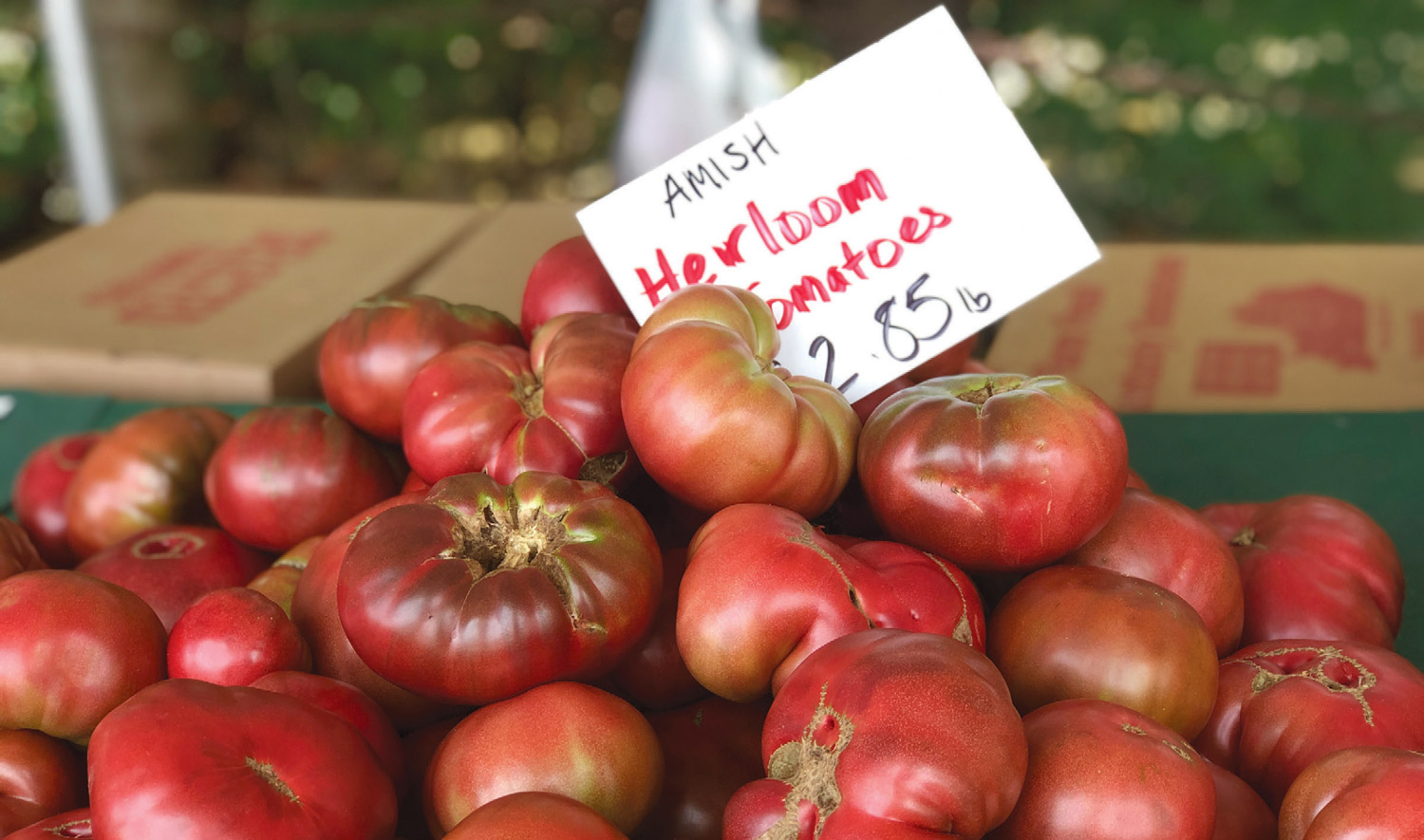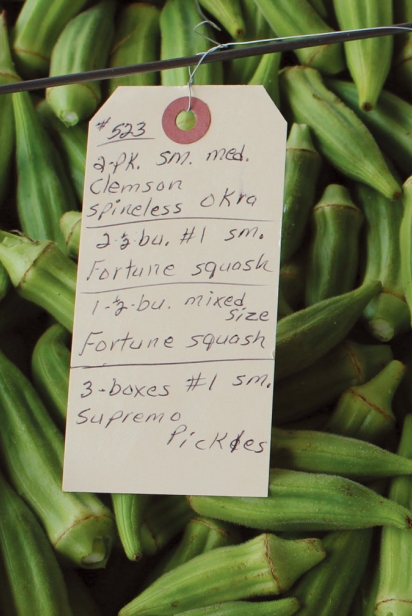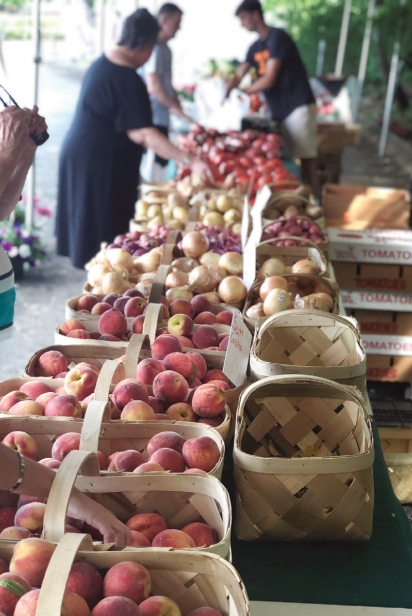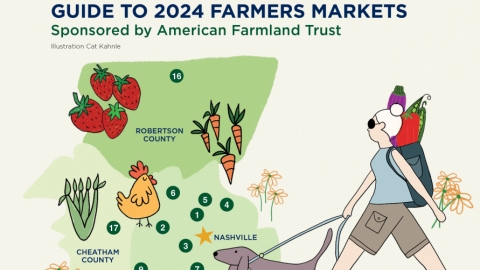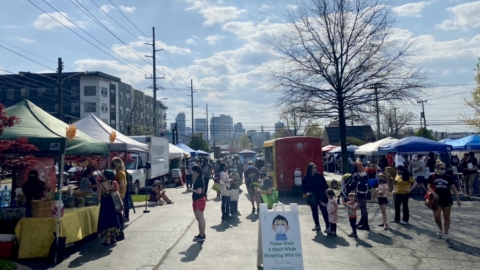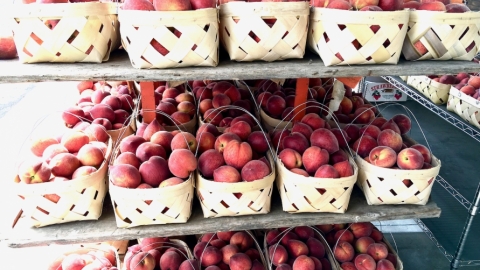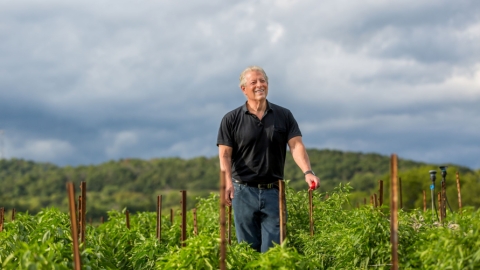Amish Produce in Nashville
Ethridge, Tennessee is home to one of the largest and oldest groups of Amish in the South. This countryside, once home to Davy Crockett, is now dotted by numerous farms with signs out front indicating the wares for sale inside. Posts read, “Okra”, “Corn”, “Soap”, “Furniture,” and the ever popular, “Peanut Brittle.”
Unfortunately, selling produce door to door is a tough sales approach in rural Tennessee. In 2006, in order to provide for their families, many in the Amish community banded together, built a small pavilion and elected an “English” (non-Amish) local to own and operate a community auction.
Since then, every Monday, Wednesday, and Friday, April through October, crowds gather under a large awning to gaze at some of the most beautiful produce the state has to offer. At 1 PM, sharp the bidding starts. Tennessee’s one and only Amish Produce Auction has begun.
As a ring of buyers—men and women dressed in jeans, t-shirts, and the occasional “let’s go fishing” ball cap—surrounds the fresh produce; a second crowd waits quietly around the sides. It only takes a quick glance to notice the long beards, matching blue shirts, and wide-brimmed straw hats. Despite their side-line position, these are the most critical members of the entire operation. These are the growers.
Although anyone can bring produce to sell at the auction, 95% live within 10 miles and 90% are old-order Amish. This means that in accordance with their religious beliefs, they wear plain clothing and have limited access to the outside world. They choose to avoid modern conveniences such as electricity, television, cars, and tractors. Without technological help, crop production requires added patience, attention to detail, and a lot of hard work.
Amish growing methods are largely determined by family tradition, passed down from father to son. Their apolitical stance prohibits them from using or seeking “organic” status, however, they’ve been using natural methods such as meticulous bee selection and careful composting for generations. In addition, the travel limitations enforced by horse and buggy transportation options encourage farm-to- table freshness.
However, many of these growing practices are not unique. Organic and local farming trends have incorporated similar practices in farms across the country. What might make Amish produce special is the alluring mystique of being Amish. People equate Amish with freshness, quality, and peaceful simplicity. Is it a mystique or real?
Hal Cole, owner of Market Fresh Produce, a covered produce stand behind the Green Hills Retired Teachers building and a staple in Green Hills, has been selling Amish produce for almost ten years. He started buying his produce at the Plowboy Auction and now works directly with the Amish farmers. According to manager John Katras, “we just know they have a really good product. Their heirloom tomatoes are second to none.” Hal attributes the quality to the water and the family values. “Mostly, they live on well water and they want to feed their kids well.” “We wouldn’t buy produce anywhere else and can’t wait til we see the tent go up every May,” says one customer. “The corn, peppers, and tomatoes are what we look forward to every summer.” Their Amish heirloom tomatoes sell out quick.
Fresh Market Produce Stand, 2209 Abbott Martin Rd, Nashville, TN 37215
For more information visit, plowboyproduceauctions.com


